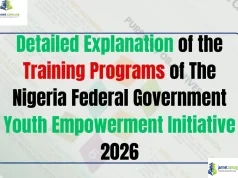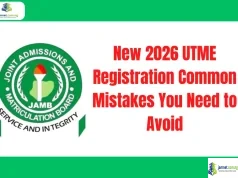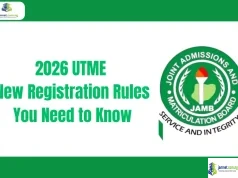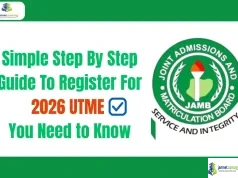A comprehensive guide to the revised Nigerian education curriculum, implemented in September 2025. This article provides a full list of subjects for Basic, Junior, and Senior Secondary levels, highlighting the shift towards skills-based learning to empower students for the future workforce


Nigeria’s education system is undergoing a significant transformation with the implementation of a new national curriculum. This reform, which took effect in September 2025, is a strategic move to prepare students for the demands of the modern, global economy.

Join our Telegram Channel for Instant Scholarship Updates
The revised curriculum reduces the subject load and shifts the focus from rote memorization to practical, skills-based learning, ensuring students are equipped with the knowledge and competencies needed to thrive in their careers and as citizens. For more on the curriculum’s overall impact, check out this comprehensive guide.
Here is a comprehensive breakdown of the new subject list for each level of education, and how it is designed to empower students.
Basic Education Subject List (Primary 1-6)
The new curriculum for basic education aims to build a strong foundational base in core areas while lightening the load on younger learners. The number of subjects for Primary 1-3 has been reduced from 13-15 to 9-10, and for Primary 4-6 from 15-17 to 10-12.
Primary 1-3
- English Studies
- Mathematics
- Nigerian Languages (Hausa, Yoruba, Igbo—one language only)
- Basic Science
- Physical & Health Education
- CRS (For Christian Pupils Only) and IS (For Muslim Pupils Only)
- Nigerian History (Compulsory)
- Social & Citizenship Studies
- Cultural & Creative Arts (CCA)
- Arabic Language (Optional)
Primary 4-6
- English Studies
- Mathematics
- Nigerian Languages (Hausa, Yoruba, Igbo—one language only)
- Basic Science & Technology
- Physical & Health Education
- Basic Digital Literacy
- CRS (For Christian Pupils Only) and IS (For Muslim Pupils Only)
- Nigerian History (Compulsory)
- Social & Citizenship Studies
- Cultural & Creative Arts (CCA)
- Pre-vocational studies
- French (Optional)
- Arabic Language (Optional)
By introducing Nigerian History as a compulsory subject and integrating a new Social & Citizenship Studies subject, the curriculum instils a sense of national identity and civic responsibility from a young age. The inclusion of Basic Digital Literacy from Primary 4-6 lays the groundwork for future-ready skills, introducing technology as a core part of learning.
Junior Secondary School (JSS 1-3)
The Junior Secondary curriculum is designed to be a bridge between foundational learning and specialization. It reduces the subject load from 15-18 to 12-14 and introduces a crucial focus on practical trades.
JSS Compulsory Subjects:
- English Studies
- Mathematics
- Nigerian Languages (Hausa, Yoruba, Igbo—one language only)
- Intermediate Science
- Physical & Health Education
- Digital Technologies
- CRS (For Christian Pupils Only) and IS (For Muslim Pupils Only)
- Nigerian History (Compulsory)
- Social & Citizenship Studies
- Cultural & Creative Arts (CCA)
- Trade Subject (Students must choose one)
- French (Optional)
- Arabic Language (Optional)
A key feature of this new nigerian education curriculum is the introduction of a compulsory Trade Subject. This empowers students with marketable skills before they even enter Senior Secondary School. The six practical trade areas for non-technical schools are:
- Solar PV Installation and Maintenance: This prepares students for the growing renewable energy sector.
- Fashion Design and Garment Making: Equips students with skills to work in or start a business in the fashion industry.
- Livestock Farming: Provides practical knowledge in agriculture and food production.
- Beauty and Cosmetology: Teaches skills in a high-demand service industry.
- Computer Hardware and GSM Repairs: Gives students hands-on technical skills for a digital world.
- Horticulture and Crop Production: Focuses on modern farming techniques.
Senior Secondary School (SSS 1-3)
The Senior Secondary curriculum is designed for specialization and deep skill development. Students are now required to take only 8 to 9 subjects, allowing them to focus on areas that align with their career aspirations. The curriculum is built around five core and compulsory subjects and specialized fields of study.
5 Core and Compulsory Subjects for All SSS Students:
- English Language
- General Mathematics
- One Trade Subject
- Citizenship and Heritage Studies
- Digital Technologies
Beyond these core subjects, students will choose from one of the following four fields of study:
1. Science
- Biology
- Chemistry
- Physics
- Agriculture
- Further Mathematics
- Physical Education
- Health Education
- Food & Nutrition
- Geography
- Technical Drawing
2. Humanities
- Nigerian History
- Government
- Christian Religious Studies
- Islamic Studies
- One Nigerian Language (Hausa, Igbo, Yoruba)
- French
- Arabic
- Visual Arts
- Music
- English Literature
- Home Management
- Catering Craft
3. Business
- Accounting
- Commerce
- Marketing
- Economics
4. Trade Subjects (Students to choose one)
- Solar PV Installation and Maintenance
- Fashion Design and Garment Making
- Livestock Farming
- Beauty and Cosmetology
- Computer Hardware and GSM Repairs
- Horticulture and Crop Production
By reducing the subject load and creating a focused structure, the curriculum ensures that students gain deep expertise in their chosen fields. The mandatory inclusion of a Trade Subject and Digital Technologies across all fields of study means every student will graduate with both academic knowledge and practical skills that are directly relevant to the workforce. This empowers them to become not just job seekers, but job creators and innovators. The skills learned here can be applied to both local and international opportunities, including preparing them for a post-graduation work permit or even studying for their masters abroad.
Download the Nigeria Revised Education CURRICULUM PDF document Here
Frequently Asked Questions
1. When will the new curriculum be implemented? The new curriculum is scheduled for phased implementation starting from the 2025/2026 academic session.
2. What is the main objective of the new curriculum? The main objective is to shift from a content-heavy, rote learning model to a competency-based, skills-oriented system that better prepares students for the modern workforce.
3. How many subjects will a student take under the new system? Students at the Senior Secondary School level will now take a reduced number of subjects, typically between 8 and 9, to allow for greater mastery in core areas.
4. Are trade subjects compulsory? Yes, all Junior Secondary School students are required to choose and study at least one trade subject from a given list.
5. Why is Nigerian History a compulsory subject? Making Nigerian History compulsory is intended to instill a strong sense of national identity, heritage, and civic responsibility in young Nigerians.
6. Will this new curriculum affect university admission requirements? Admission requirements for universities will be updated to reflect the new subject combinations and a focus on competency-based learning. Students should check with their desired institutions for specific requirements.
7. How will teachers be prepared for the new curriculum? The government plans to implement comprehensive training and retraining programs for teachers to ensure they are equipped to teach the new skills-based subjects effectively.
8. What kind of digital skills will students learn? Students will be exposed to digital literacy, basic programming, artificial intelligence, and other technological subjects to close the digital skills gap.
9. How does this curriculum address youth unemployment? By making practical and vocational skills compulsory, the curriculum aims to equip students with the ability to either start their own businesses or be more marketable to employers, thereby addressing unemployment.
10. Is the new curriculum being implemented across all states at once? The implementation is designed to be phased, but it is a national policy that will be rolled out across schools in all states of the federation.













